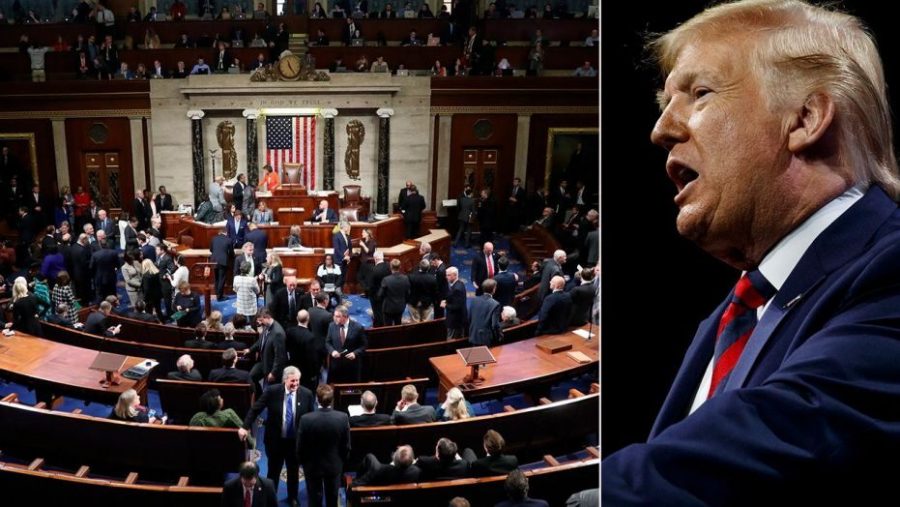No, please don’t do that: Why impeachment is a losing battle for everyone on Capitol Hill
Impeachment has been a hot button topic in Washington since Donald Trump took presidential office in 2017. With each end of the political spectrum adding their two cents on the topic, it’s difficult to weed out the truth.
Is it an atrocious mutiny like the Republicans claim? Or the deliverance from evil that the Democrats make it out to be?
The short answer to both of those questions is no.
Impeachment has been a staple in our government since the drafting of the Constitution in 1787. After the reign of “Mad” King George III, the founding fathers wanted to ensure that political power stayed with the people. Impeachment’s sole purpose is to provide constituents with the liberty to revoke the power that they’ve granted to an individual if ever they find him unfit. While many Americans deem Donald Trump to be just that, the Democratic party fails to acknowledge that plenty of Americans don’t.
And, as of right now, that minority controls the conservative Senate.
Impeachment only requires that a majority in the House of Representatives votes in favor of the action. However, in order to declare guilt, the evidence for impeachment must pass through the Senate.
As it stands, the Republican majority won’t concede that Trump should be out of office.
Instead, they’ll most probably vote not guilty. Trump will become a martyr, persecuted for a crime he didn’t commit. His support base, perhaps beaten down by
some of his more outlandish claims and lack of policy conviction, will revive itself to stand behind its “fearless” leader.
The Democratic party, with its already-questionable cast of presidential candidates, can kiss all hopes for success goodbye.
That is, if the vote makes it that far.
For impeachment to even reach the Senate, the House of Representatives must collect enough evidence to bring forth a proper charge. As they subpoena government buildings across Washington, the possibility that their search will yield no rewards builds. If the House fails to produce information, the situation could be just as, if not more, detrimental to the democratic campaign for the executive office.
Already throughout Trump’s presidency, he’s blurred the lines between the proper legal definition of guilt and his own subjective view. When more evidence of Kavanaugh’s alleged sexual misconduct surfaced in recent months, he took to Twitter to claim that the accusations were already proven false. Yet, legally, they never were: instead, it was decided that the claim had no base—that is, that the allegations lacked sufficient evidence.
This isn’t the first time Trump has ignored proper legal definitions in favor of his own, and it most positively won’t be the last. If the House of Representatives decides to end the impeachment investigation, they won’t just lose their one shot at impeaching Trump before the 2020 election. In the public eye, they’ll be conceding Trump’s innocence—even if it doesn’t exist.
Now, unless the Senate returns a guilty verdict or decides to censure Trump, Democrats will likely lose the upcoming presidential election. Even if they do receive a majority vote in their favor, there’s still little to celebrate.
If Trump were ordered to step down, current Vice President Mike Pence
would ascend to the Oval Office. With a dark history of gay conversion therapy and poor gun policies, Pence doesn’t exactly scream “dream executive.”
He maintains an additional knowledge of the political system that Trump lacks, which potentially makes him even more dangerous. He’s a politician that any conservative so inclined (even one who has abandoned Trump) could get behind to push a more alt-right agenda.
Furthermore, with no precedent dictating post-impeachment proceedings, Pence could easily make Trump his vice president. There’s no way to safeguard against Trump returning to his former office through a series of small loopholes. In that case, impeachment could be described like Trump’s wall: a completely superfluous, ineffective defense against a problem that doesn’t truly exist.
There’s no good outcome for the Democrats here, but they’ve already opened the floodgates. They have to see this through—or risk four more years under Trump.



